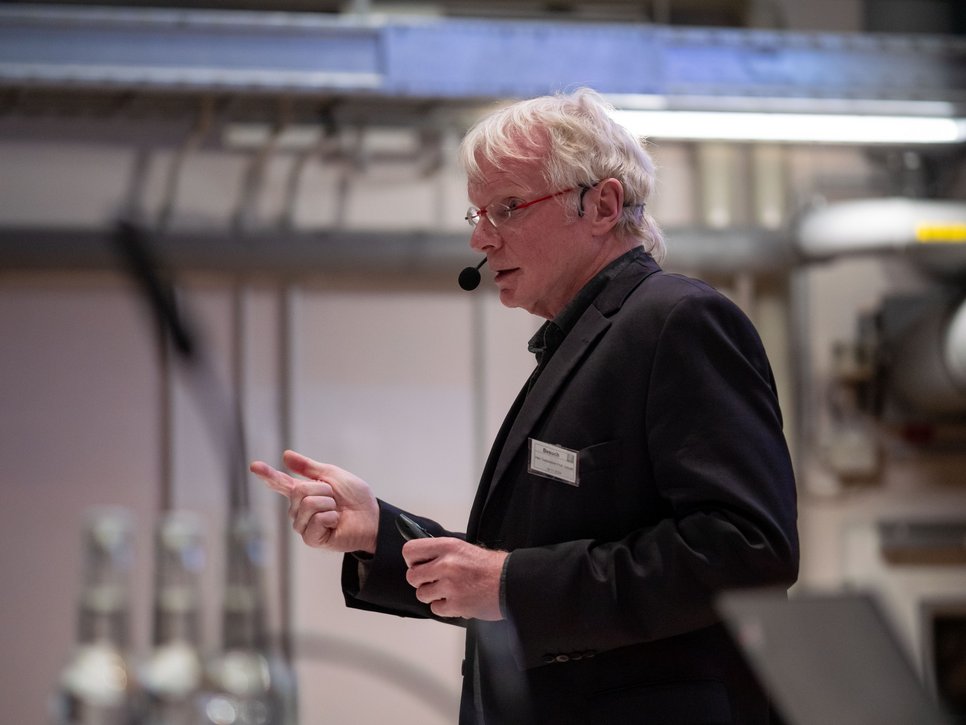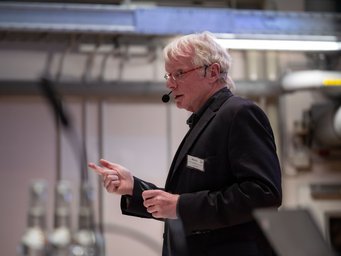How will we heat our homes, drive our cars, or charge our phones during sunless periods in the future? Professor Ferdi Schüth, Director at the Max-Planck-Institut für Kohleforschung tackled these questions in a packed lecture as part of the "Kopfsalat" series, hosted by the Max Planck Institute for Sustainable Materials (MPI-SusMat).
Schüth highlighted that renewable energy and the electrification of transport and heating are essential to achieving the energy transition. Over the past years, the efficiency of solar panels has significantly improved, and electric vehicles now offer increasingly greater ranges. However, challenges remain, particularly in energy storage infrastructure and dealing with unpredictable shortfalls in wind, solar, and hydropower. Potential solutions include ever-improving battery technology, which allows for higher energy storage capacity, and conventional power plants to compensate for lulls in wind or solar energy. Fusion energy, however, is not a viable solution for Schüth—it might only become available decades from now, far too late to meet the 2050 climate goals.
After the lecture, guests at MPI-SusMat discussed topics such as the political feasibility of the energy transition and the potential use of electric vehicles as energy storage solutions.
MPI-SusMat organizes the "Kopfsalat" series annually, featuring accessible scientific talks by speakers from a wide range of disciplines. The next event, "Wie wirkt Licht auf uns Menschen?", will take place on March 12 at 6 PM at MPI-SusMat.
Find more information about the Kopfsalat series here: https://www.mpie.de/kopfsalat

